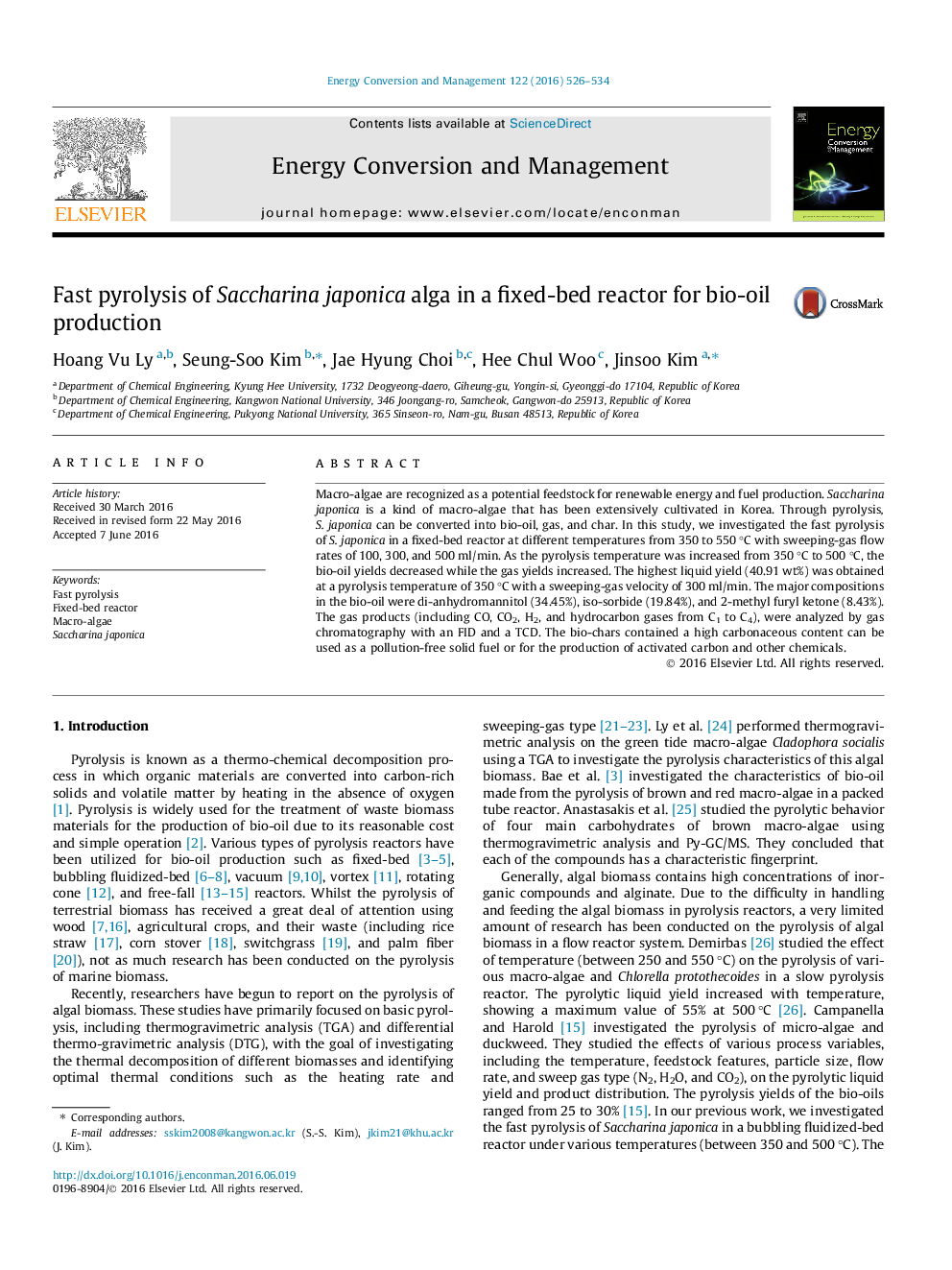| Article ID | Journal | Published Year | Pages | File Type |
|---|---|---|---|---|
| 7160356 | Energy Conversion and Management | 2016 | 9 Pages |
Abstract
Macro-algae are recognized as a potential feedstock for renewable energy and fuel production. Saccharina japonica is a kind of macro-algae that has been extensively cultivated in Korea. Through pyrolysis, S. japonica can be converted into bio-oil, gas, and char. In this study, we investigated the fast pyrolysis of S. japonica in a fixed-bed reactor at different temperatures from 350 to 550 °C with sweeping-gas flow rates of 100, 300, and 500 ml/min. As the pyrolysis temperature was increased from 350 °C to 500 °C, the bio-oil yields decreased while the gas yields increased. The highest liquid yield (40.91 wt%) was obtained at a pyrolysis temperature of 350 °C with a sweeping-gas velocity of 300 ml/min. The major compositions in the bio-oil were di-anhydromannitol (34.45%), iso-sorbide (19.84%), and 2-methyl furyl ketone (8.43%). The gas products (including CO, CO2, H2, and hydrocarbon gases from C1 to C4), were analyzed by gas chromatography with an FID and a TCD. The bio-chars contained a high carbonaceous content can be used as a pollution-free solid fuel or for the production of activated carbon and other chemicals.
Related Topics
Physical Sciences and Engineering
Energy
Energy (General)
Authors
Hoang Vu Ly, Seung-Soo Kim, Jae Hyung Choi, Hee Chul Woo, Jinsoo Kim,
